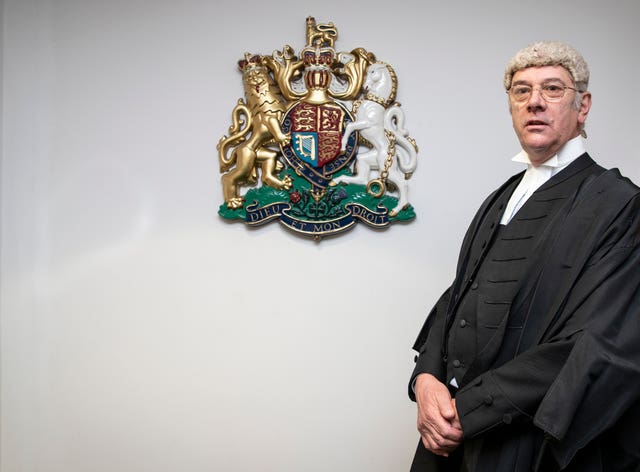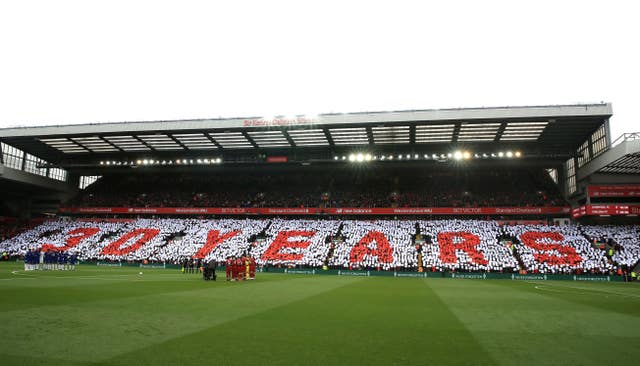Hillsborough police chief Duckenfield cleared over deaths of 95 Liverpool fans
The match commander was acquitted of gross negligence manslaughter by a jury at Preston Crown Court.

Hillsborough match commander David Duckenfield has been cleared of the gross negligence manslaughter of 95 Liverpool fans who died at the 1989 FA Cup semi-final.
There were gasps in court as seven women and three men on the jury at Preston Crown Court returned its verdict on Thursday following a trial which lasted more than six weeks.
The prosecution in the case alleged Duckenfield, 75, had a “personal responsibility” for what happened at the match between Liverpool and Nottingham Forest on April 15 1989, where 96 men, women and children, were fatally injured in a crush on the Leppings Lane terrace.

About 45 family members watched the verdict from the Cunard building in Liverpool, where the trial was screened.
One family member shouted: “Stitched up again” and other family members were in tears.
Christine Burke, the daughter of Henry Burke who was killed in the tragedy, stood in the public gallery and tearfully said to the judge: “With all due respect, my lord, 96 people were found unlawfully killed to a criminal standard.
“I would like to know who is responsible for my father’s death because someone is.”
Under the law at the time Duckenfield was not charged over the death of the 96th victim Tony Bland, because he died more than a year and a day after the disaster.
He stood trial earlier this year but the jury was discharged after failing to reach a verdict and a retrial was ordered.
The court heard the chief superintendent ordered the opening of exit gates at the Leppings Lane end of the ground at 2.52pm, eight minutes before kick-off, after the area outside the turnstiles became dangerously overcrowded.
More than 2,000 fans entered through exit gate C once it was opened and many headed for the tunnel ahead of them, which led to the central pens where the crush happened.

Duckenfield did not give evidence in the trial because, the court heard, he was suffering from post-traumatic stress disorder.
Judge Sir Peter Openshaw also told jurors the condition could explain Duckenfield’s lack of reaction as he sat in the well of the court throughout the trial.
Duckenfield sat impassive in front of the dock with his hands clasped and then drank from a glass of water as the verdict came in after the jury had deliberated for 13 hours and 43 minutes. His wife, Ann, later went over to comfort her husband in the courtroom.
The judge said: “He has a resilient, passive and expressionless external presentation which gives no indication of his state of mind so don’t draw an adverse inference against him.”
The court was played audio of the retired chief superintendent giving evidence to inquests in 2015.
At the hearings he accepted he should have taken steps to close the tunnel to the central pens after ordering the opening of the exit gate.

Benjamin Myers QC, defending Duckenfield, told the jury he had been a “target of blame” for the disaster.
He told the court: “We say David Duckenfield did do what he was expected to do as match commander. He didn’t breach his duty, he did what he was expected to do in difficult circumstances.”
Summing up the case, the judge said: “The deaths of 96 spectators, many of whom were very young, is, of course, a profound human tragedy attended by much anguish and anger which for many has not passed with time.
“But, as both counsel have advised you and I will now direct you, as you go about your duty you must put aside your emotions and sympathies, either for the bereaved families or indeed for Mr Duckenfield, and decide the case with a cold, calm and dispassionate review of the evidence that you have heard in court.”
Former Sheffield Wednesday club secretary Graham Mackrell, 69, stood trial alongside Duckenfield in January and was found guilty of a health and safety offence for failing to ensure there were enough turnstiles to prevent unduly large crowds building up outside the ground.
He was fined £6,500 and ordered to pay £5,000.





